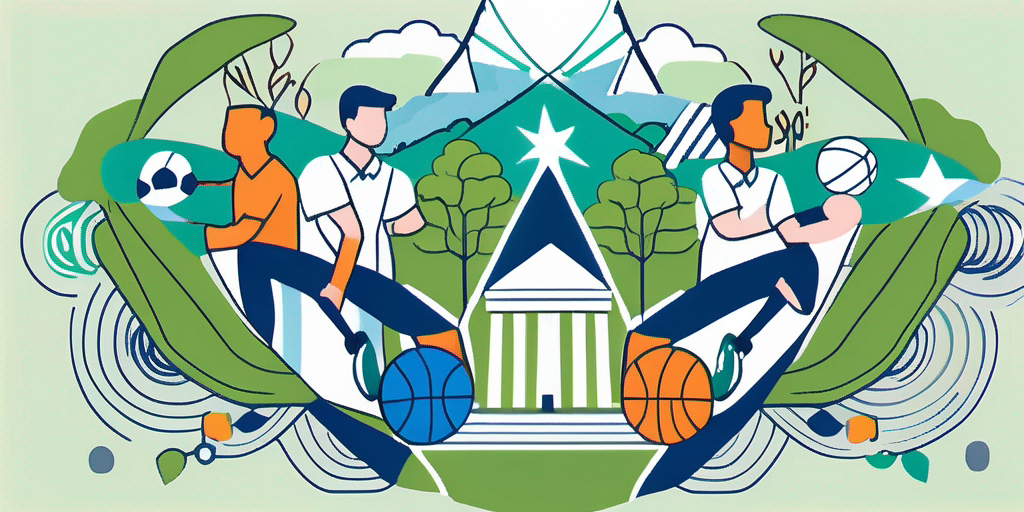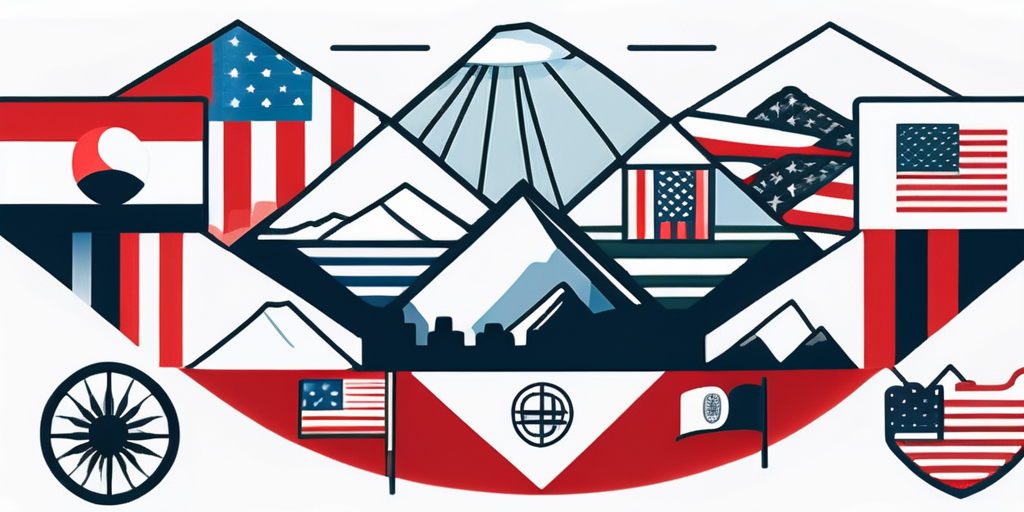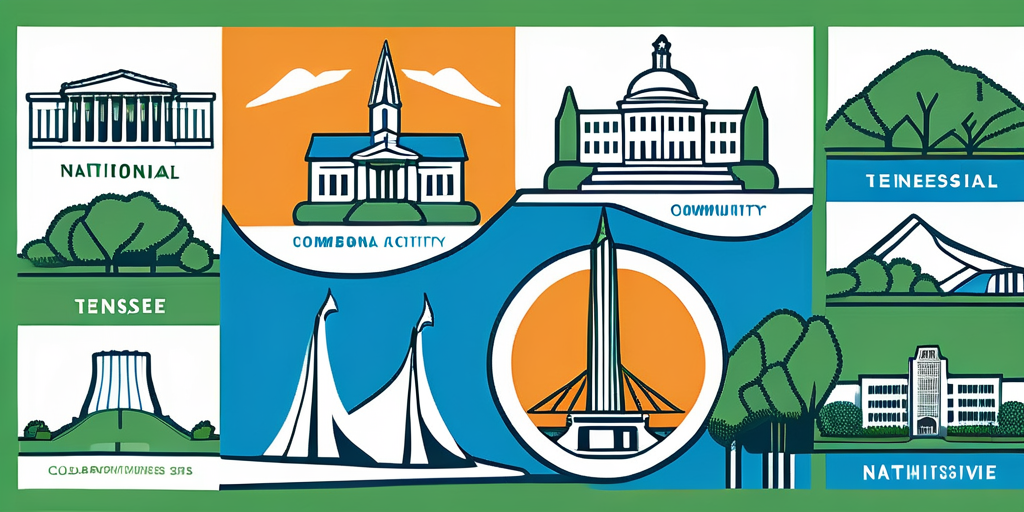
Unity is an essential pillar of any thriving community, especially within a national framework. At Tennessee National, the emphasis on group activities plays a crucial role in fostering this unity. This article explores the concept of unity, the contributions of collaborative efforts, and the future direction of such initiatives designed to enhance social cohesion. Through comprehensive analysis, we can better understand the impact group activities have on building a harmonious environment.
Unity in a national setting signifies the collective bond that connects individuals from diverse backgrounds, cultures, and experiences. It encompasses mutual respect, shared values, and common goals that unite people towards a common purpose. Understanding this unity is fundamental for any nation aiming for sustainable progress and social stability.

In a national context, unity can be defined as the state of being one; it involves collaboration and connection among individuals that transcends their differences. This definition entails both emotional and practical dimensions. Emotionally, it reflects the sense of belonging that individuals feel towards their community. Practically, it manifests in cooperative efforts aimed at achieving national goals, such as economic development and social justice.
Moreover, unity is often tested during times of crisis, such as natural disasters or political upheaval. In these moments, the strength of a nation’s unity can determine its resilience. When citizens come together to support one another, regardless of their differences, they reinforce the fabric of society. This solidarity not only aids in recovery but also fosters a sense of trust and cooperation that can last long after the immediate challenges have passed.
Unity is not just a desirable trait; it is essential for national development. Nations that emphasize unity tend to perform better in various domains – be it economic growth, social cohesion, or political stability. When citizens work together, they harness collective strengths and resources, leading to innovative solutions to complex challenges. A unified society can better advocate for equitable policies, resulting in a more inclusive approach to national development.
Furthermore, the role of education in fostering unity cannot be overstated. Educational institutions serve as melting pots where individuals from different backgrounds come together, share ideas, and learn from one another. By promoting curricula that emphasize shared history and cultural appreciation, schools can cultivate a sense of national identity that transcends individual differences. This educational foundation not only prepares future generations to embrace unity but also equips them with the tools to navigate and celebrate diversity within their nation.
Group activities serve as a practical and engaging method by which individuals can interact and collaborate. These activities have profound psychological effects on participants, promoting feelings of connection and belonging across different segments of society. By bringing people together, group activities create an environment where unity flourishes. Whether through team sports, collaborative art projects, or community clean-up initiatives, the shared goals and experiences foster a sense of camaraderie that transcends individual differences.
Participating in group activities has significant psychological benefits, including increased self-esteem and reduced anxiety. When individuals engage collaboratively, they feel valued and appreciated, enhancing their sense of identity within the group. Moreover, these activities can diminish feelings of isolation and loneliness—common issues in today’s fast-paced world. The act of working together towards a common goal can also stimulate the release of endorphins, the body's natural feel-good chemicals, leading to an uplifted mood and a more positive outlook on life. This biochemical response is particularly beneficial in combating stress and fostering resilience among participants.
Group activities, whether they involve sports, cultural celebrations, or community service, work to build a sense of belonging. When people participate in shared experiences, they create memories and develop relationships that nurture a deeper connection to their community. This feeling of belonging is integral to enhancing unity, as it reinforces commitment to collective values and objectives. Furthermore, these activities often encourage the sharing of diverse perspectives, allowing individuals to learn from one another and appreciate the richness of their differences. This exchange not only strengthens interpersonal bonds but also cultivates empathy and understanding, which are crucial for fostering a cohesive society.
In addition to enhancing personal connections, group activities can also serve as a platform for collective action and social change. By uniting individuals around a common cause, such as environmental conservation or social justice, these activities empower participants to work together toward meaningful outcomes. This collaborative spirit not only amplifies the impact of their efforts but also inspires a sense of agency among individuals, reinforcing the idea that they can effect change when they come together. As participants witness the tangible results of their teamwork, their commitment to the group and its mission deepens, further solidifying the bonds of unity forged through shared action.
At Tennessee National, group activities form an integral component of the community-building strategy. These activities have been carefully designed to engage a wide array of participants, ensuring inclusivity and representation. The diversity of these activities reflects the multifaceted nature of the community itself. By fostering an environment where everyone feels welcome, Tennessee National not only strengthens social bonds but also enhances the overall quality of life for its residents.

The range of group activities at Tennessee National is impressively diverse, catering to varying interests and age groups. Popular activities include community workshops, sports leagues, volunteering initiatives, and cultural festivals. Each of these not only offers enjoyment but also promotes interpersonal connections among participants. The aim is to cultivate a shared identity and collective pride. For instance, community workshops often feature local artisans and experts who share their skills, from pottery making to digital photography, encouraging participants to explore new hobbies while connecting with their neighbors. Meanwhile, cultural festivals celebrate the rich tapestry of traditions represented in the community, allowing residents to share their heritage through food, music, and dance.
Implementing group activities effectively requires careful planning and strong leadership. At Tennessee National, a dedicated team coordinates these activities, ensuring they are structured yet flexible enough to adapt to the community's needs. Success hinges on engaging community members as active participants in the planning process, which not only enriches the activities but amplifies their impact on unity. This collaborative approach empowers residents to voice their ideas and preferences, leading to a more vibrant and responsive activity schedule. Additionally, feedback mechanisms are in place to assess the effectiveness of each event, allowing for continuous improvement and innovation. By fostering a culture of participation and responsiveness, Tennessee National ensures that its group activities remain relevant and engaging for all community members.
Evaluating the effectiveness of group activities is vital for future planning and development. It provides insight into what works well and what can be improved. Several indicators can help assess the success of these initiatives in fostering unity within the community. Understanding these metrics not only aids in refining existing programs but also in designing new initiatives that resonate with the community's needs and aspirations.

Successful unity-building can be measured through various indicators, including participation rates, feedback from participants, and observable changes in community dynamics. High participation rates signify strong interest and involvement, while positive feedback can reveal the perceived value of the activities. Moreover, improvements in social cohesion and mutual respect within the community are key indicators that unity is thriving. For instance, tracking the number of repeat participants in activities can indicate a growing commitment to community engagement, suggesting that individuals feel a sense of belonging and connection to their peers.
Furthermore, the establishment of informal networks and friendships that extend beyond organized events can serve as a powerful indicator of unity. When individuals begin to interact outside of structured activities, it reflects a deeper level of trust and camaraderie within the community. Surveys and interviews can also be instrumental in capturing these nuanced relationships, providing qualitative insights that complement quantitative data.
However, measuring unity is not without its challenges. Diverse perspectives and needs can complicate the evaluation process. Additionally, subjective experiences and feelings of community members may vary widely. To address these issues, a mixed-methods approach can be adopted, utilizing both qualitative and quantitative data to develop a more comprehensive understanding of the impact that group activities have on unity. This approach allows for a richer narrative to emerge, highlighting both the statistical significance of participation and the personal stories that illustrate its emotional resonance.
Moreover, engaging community members in the evaluation process can help to mitigate some of these challenges. By involving participants in discussions about what metrics are most meaningful to them, organizers can ensure that the evaluation framework is aligned with the community's values and priorities. Workshops or focus groups can be organized to gather insights directly from participants, fostering a sense of ownership over the evaluation process and encouraging more honest feedback. This collaborative approach not only enhances the validity of the findings but also strengthens the bonds within the community as members work together towards a common goal.
Looking towards the future, the role of group activities in fostering unity at Tennessee National continues to evolve. Embracing innovations in the planning and execution of these activities is crucial to meet the changing needs of the community.
Future group activities may incorporate technology to enhance engagement, such as virtual reality experiences and online platforms for remote participation. Innovative approaches can encourage wider participation and create a more inclusive environment that accommodates individuals who may face barriers in traditional settings. By leveraging technology, Tennessee National can reach a broader audience and reinforce unity through shared digital experiences. Additionally, gamification elements can be introduced to make activities more engaging and fun, allowing participants to collaborate in a competitive yet friendly manner. This could include team challenges that not only promote teamwork but also foster a sense of camaraderie and shared achievement among participants.
Finally, strong leadership plays a critical role in advancing group activities. Leaders must be proactive in seeking feedback, empowering participants, and fostering an atmosphere where everyone feels heard and valued. By championing these efforts, leaders at Tennessee National can ensure that group activities continue to be a catalyst for unity and shared purpose. Furthermore, training programs for leaders can be developed to equip them with the necessary skills to facilitate discussions and manage diverse groups effectively. This investment in leadership development can create a ripple effect, inspiring participants to take on leadership roles themselves, thereby cultivating a culture of inclusivity and shared responsibility.
As we look ahead, it is essential to recognize the potential of community partnerships in enriching group activities. Collaborating with local organizations and businesses can bring fresh perspectives and resources, enhancing the variety and scope of activities offered. By engaging with the wider community, Tennessee National can create opportunities for cross-cultural exchanges, allowing participants to learn from one another and build connections that transcend traditional boundaries. This collaborative spirit can further solidify the bonds within the community, ensuring that everyone feels a sense of belonging and investment in the collective future.